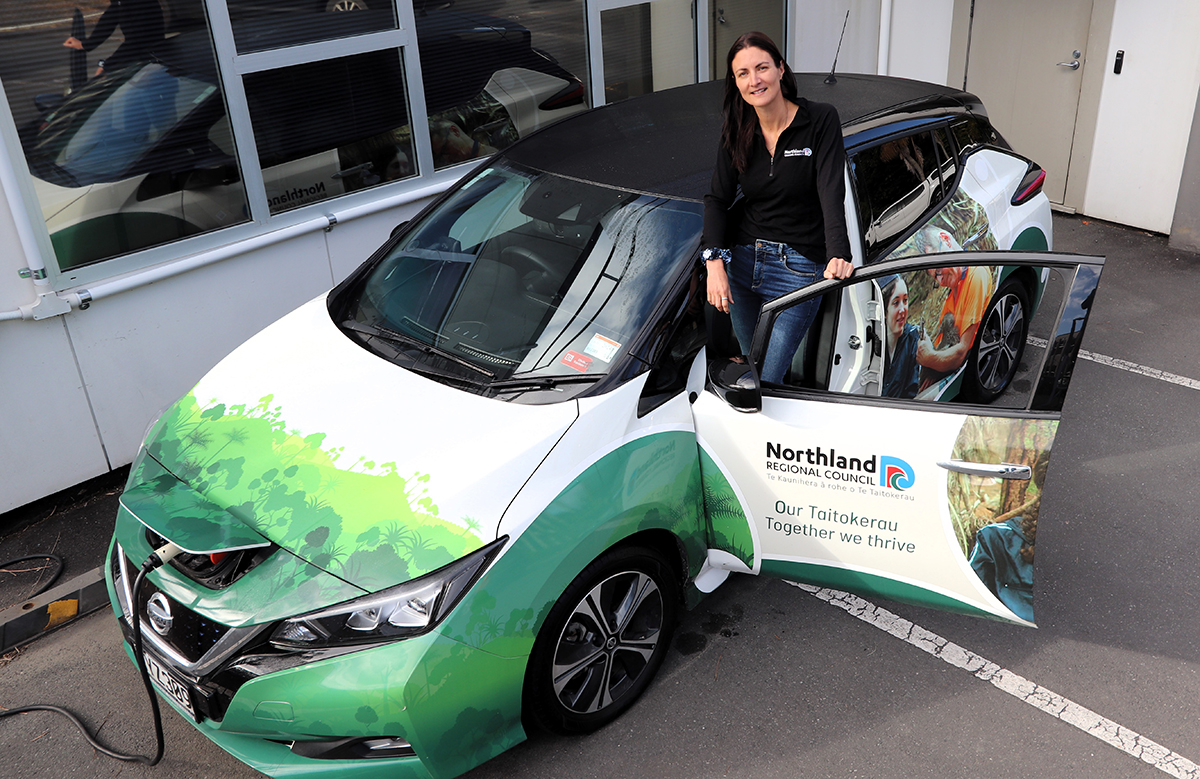‘Ambitious’ plan to slash council carbon emissions
3 Oct 2023, 9:54 AM
Northland Regional Councillors have adopted an ambitious plan to slash the organisation’s own carbon emissions in half by 2030 and to net zero by 2050. The council then aims to have a ‘climate positive status’ from 2050 onwards.
Chair Tui Shortland says while unashamedly ambitious, analysis done on potential emissions reductions that could be implemented indicates the goal is achievable.
She says the scientific evidence around human induced climate change is unequivocal and as an organisation tasked with serving Northland’s environmental, economic and community resilience needs, the council is well positioned to display strong leadership.
“Climate change is an existential threat and therefore vital that we reduce greenhouse gas emissions as soon as possible.”
Central to the plan is the electrification of Whangarei’s CityLink bus fleet by 2030 but other potential moves include swapping the remainder of the council’s vehicle fleet to electric and installing solar arrays to cover all electricity consumption over the same period. (Of the council’s current 78-strong fleet, six are full EVs and another 18 are plug-in hybrids.)
However, Chair Shortland says reducing its emissions to meet the new targets “will require an emissions reduction lens to be put across all aspects of council business”.
“Some emissions reductions initiatives that are introduced will require an aspect of change management as the organisation transitions towards a low carbon future.”
Longer term the council will also need to develop a carbon removal/offset investment plan to achieve its net zero target and climate positive ambition.
Collectively the suite of measures could slash the council’s annual carbon emissions from 1288 tonnes annually to 644 tonnes by 2030 and to 128 tonnes by 2050.
Costings for the plan and initiatives for how the emissions will be cut have yet to be worked through in detail, but “feasibility studies will be undertaken, and business cases will be developed as part of any proposed significant spend”.
“It is anticipated that increased budget will be sought through the Long Term Plan process for various initiatives such as fleet electrification and a feasibility study for electrification of the bus fleet.”
Chair Shortland says an Emissions Reduction Plan prepared recently for the council by Tonkin + Taylor pointed out that some measures including installation of more solar could ultimately save it money.
Chair Shortland says councillors had workshopped the climate change issue in July to guide staff on how ambitious they would like to be and she was proud of the approach they had collectively decided on. At a meeting in Kaitaia on 26 September councillors had formally voted to adopt emissions reduction and net zero targets for the organisation so the council’s Emissions Reduction Plan could be completed.
“The effects of climate change will increasingly disrupt our water, land, ecosystems, people and economy and Northland communities are particularly exposed.”
“Many of our most vulnerable community members, settlements, town centres and roads sit on coastal floodplains, exposed to sea level rise and increased flooding. Negative impacts on human health will also affect our communities.”
Chair Shortland says ultimately the initiatives the council chooses to implement to achieve its emissions reduction targets can be an example to others.

Natalie Child, Northland Regional Council’s Zero Carbon Transition Advisor - Climate Change, with one of the EVs in the council’s existing fleet.
